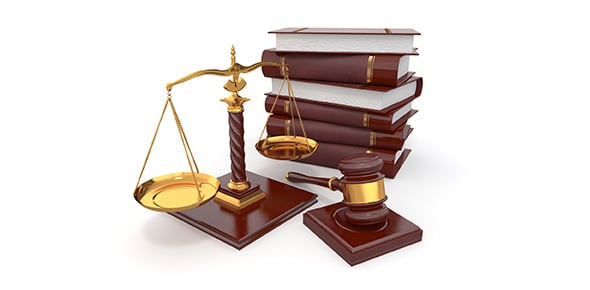What is the term for describing the evidence that may be considered by...
An _____________ is a request made after a trial by a party that has...
____________ is the legal authority of a court to hear and decide a...
True or false: To remand is to send back
The official decision of a court finally resolving the dispute between...
The decision of a trial jury or a judge that determines the guilt or...
A trial without a jury, in which the judge serves as the fact-finder,...
A written, word-for-word record of what was said, either in a...
Money that a defendant pays a plaintiff in a civil case if the...
_________ is the term used to describe procedures used to obtain...
Evidence presented by a witness who did not see or hear the incident...
A ____ is a civil, not a criminal, wrong. It is a negligent or...
_________ is legal advice. _______ is also used to refer to the...
_______ refers to the Government entity authorized to resolve legal...
A request by a litigant to a judge for a decision on an issue relating...
A _____ is the geographic area in which a court has...
Evidence presented orally by witnesses during trials or before grand...
An _______________ is the formal written statement by a defendant in a...
A _______ is a written statement that begins a civil lawsuit, in which...
The disputed point between parties in a lawsuit is an ______.
True or false: The act of a court setting aside the lower...
Issue is also (see question 24 above) a term referring to:
When a command, issued under a court's authority, to a witness to...
A synonym for legal precedent, ____ ____, is the law as established in...
A log containing the complete history of each cast in the form of...
__ _____ is a proceeding brought before the court by one party only,...
A judge's written explanation of the decision of the court...
A court decision in an earlier case with facts and legal issues...
A _______ is a legal document that transfers ownership of real...
A ______ is a written statement submitted in a trial or appellate...
A subpoena (see question 44 above) duces tecum is a command to a...
The court officer who oversees administrative functions, especially...
An oral statement made before an officer authorized by law to...
The study of law and the structure of the legal system is called...
The duty to prove disputed facts is called the ___________ of...
When the judge and lawyers meet to plan the trial, discuss which...
An ______________ is a written or printed statement made under oath.
A complete collection of every document filed in court in a case is a...
____ ____________ are a judge's directions to the jury before it...
_________________ (a form of discovery) consist of written questions...
A pretrial motion requesting the court to prohibit the other side from...
_________ are written statements filed with the court which describe a...
A written account of the proceedings in a case, including all...
A court order preventing one or more named parties from taking some...
____ ____ is the jury selection process of questioning prospective...
Relative to jury selection, a __________ _________ refers to the...
When parties to a lawsuit resolve their dispute without having a...
__________ is a case, controversy or lawsuit. Participants...
A decision made on the basis of statements and evidence presented for...
The process of calling a witness's testimony into doubt is called...

















